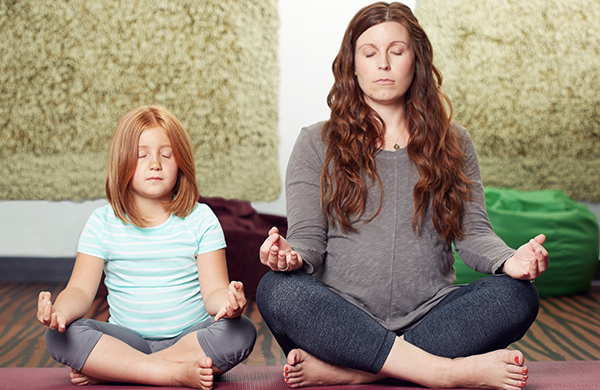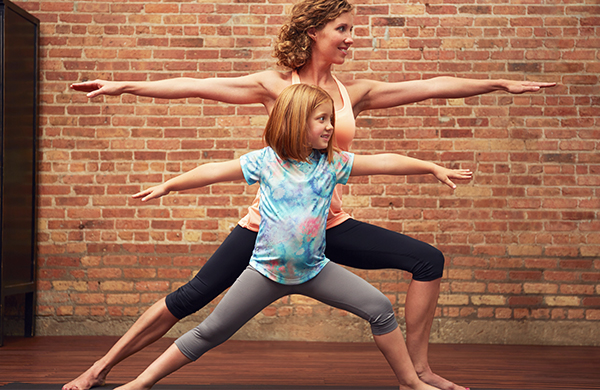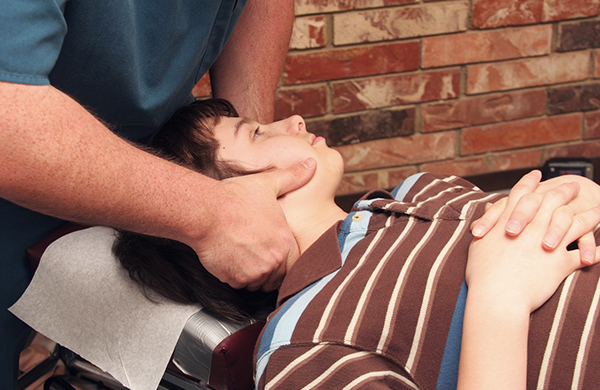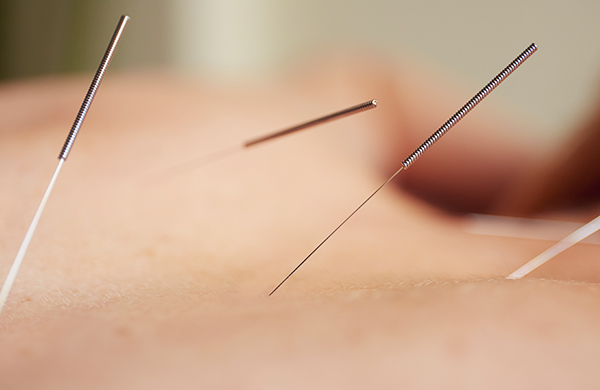
Nearly one in every three Americans has tried some form of alternative medicine as a means of bolstering their overall health and wellness, according to a 2015 study by the National Institutes of Health. When incorporated into a healthy lifestyle, therapies like yoga and acupuncture or dietary aids like juice cleanses may help people feel physically or mentally better.
Many of these alternative therapies have been shown to be beneficial for grown-ups, at least to a certain degree. But does that also mean they’re good for kids? Below, we broke down some popular forms of alternative medicine to see what positives they may (or may not) offer for wee ones.
Yoga for kids

Adults often turn to yoga for its physical benefits, as well as its ability to help relieve stress and improve concentration. These are all things kids can benefit from, too. Practicing age-appropriate yoga moves can help kids develop better flexibility and balance. Most importantly, it gets them moving instead of simply sitting in front of a screen. And since all it requires is a mat, it’s a great way to get them to be active, even on a rainy day.
"In children’s yoga, it’s not about getting into a pose and being bendy and flexy; it’s about barking in downward-facing dog and mooing in cow pose."
Yoga may also help boost a kid’s confidence and self-esteem. When we last spoke to yoga instructor Jill Carey, co-owner of Mission Propelle, an organization that teaches yoga in Chicagoland schools, she discussed how the practice could expand children’s horizons.
“Occasionally, I’ll have a girl say, ‘I’m not flexible, I can’t do yoga’. And then I show her that I can’t touch my toes even though I own a yoga company, and that’s OK.”
She also believes that yoga can stimulate young minds and imaginations. “We combine all kinds of sounds and senses that make it exciting and different from other physical disciplines,” she said.
Verdict: Try it!

Most people associate a visit to the chiropractor with a crick in the neck or an aching back. But, as we learned when we last spoke with board-certified chiropractor Christopher Wolcott of Chicago’s Southport Wellness, chiropractic care is often used to address all sorts of musculoskeletal and nervous-system conditions, including headaches or wrist or leg pain. As a chiropractor, he said, his job is to consider the body as a whole whose parts can affect one another. As such, some patients come to chiropractors seeking relief for conditions caused by an improperly functioning nervous system, such as an ear infection or asthma.
Experts generally have mixed opinions about whether chiropractic care is effective for children. But most agree that it is not likely to be harmful, assuming treatments are performed by a reputable chiropractor with experience working with children. Most also agree that chiropractic treatment should complement traditional medicine, not replace it.
Verdict: Speak with your pediatrician about whether your child may benefit from chiropractic treatment before scheduling an appointment.

One of the most well-known forms of Chinese medicine, acupuncture revolves around the insertion of hair-thin needles at specific points in the body. Many modern Western practitioners believe that the needles help stimulate nerves and connective tissue throughout the body and that they may help boost blood flow. Acupuncture is often used to treat a wide range of conditions, from headaches to anxiety.
One area that may be of particular interest for parents: allergies. As we recently reported, acupuncture for allergies is one of the most commonly sought forms of alternative medicine.
Why?
“Western medicine often treats allergies in isolation,” Angela Buckridge, who owns Angie’s Acupuncture in Tennessee, told us. “ … At an acupuncturist, allergies are looked at more as a piece of a puzzle.”
While there’s little data to verify the efficacy of acupuncture in either adults or kids—especially for treating anything besides pain or migraines—studies have shown that it is at least safe for kids treated by a trained practitioner.
However, the bigger issue may be whether your kid can handle the idea of all those needles, which don’t hurt but may be scary looking.
Verdict: Sure, as long as your kid is OK with needles.
Juice cleanses for kids

Juice cleanses continue to be popular with adults looking to lose weight or boost their body’s detoxifying powers, but a growing number of companies are now marketing the cleanses to kids as well. Many parents may wonder if the juices—often loaded with fruits, veggies, and, in some cases, protein—might be a great way to get a picky eater to get the vitamins and nutrients they need.
Of course, a juice cleanse isn’t easy, as our own tester discovered, so it’s no wonder that some experts are skeptical about cleanses that cater to kids. Dr. Marisol Gonzalez, an adolescent-medicine specialist, told the New York Post that she advises against such a restricted diet for children: “Your body needs a certain number of calories for your heart to beat. If [you cleanse] before puberty, you can delay growth.” She also raised concerns that following such a regimen at a young age might lead to eating disorders in the future.
Verdict: Skip it. While it certainly wouldn’t hurt for a child to incorporate the vitamin-packed juices into their normal lifestyle, kids need a well-balanced diet to support their growing minds and bodies.
Check out related reads on the The Guide:
An expert in yoga for kids demonstrates how to adapt the practice for a child’s attention span.
There’s a fine line between a picky eater and a connoisseur. Turn your child into the latter with these three tips from cookbook author Leanne Brown.







